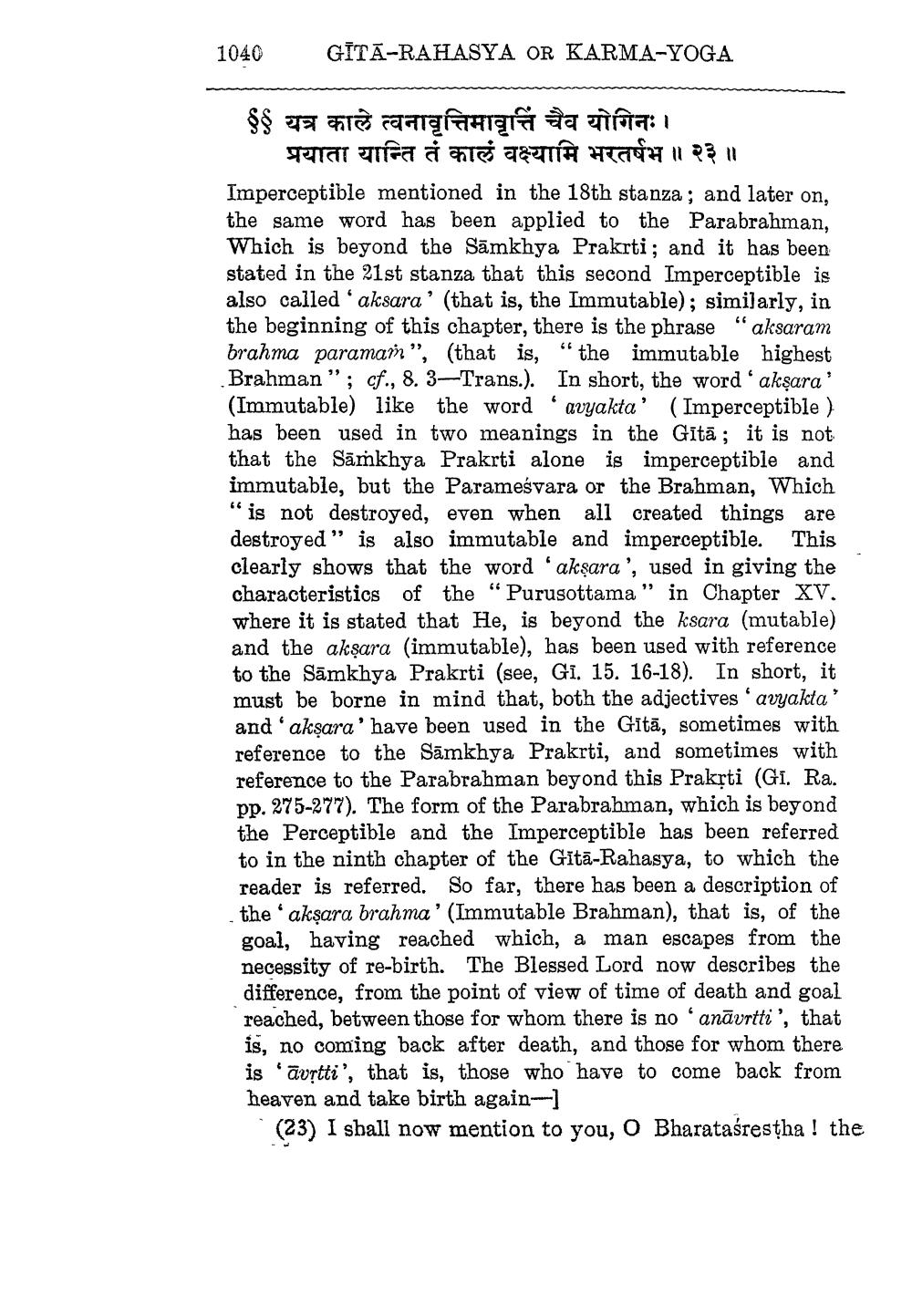________________
1040
GĪTĀ-RAHASYA OR KARMA-YOGA
w
६ यत्र काले त्वनावृत्तिमावृत्तिं चैव योगिनः।
प्रयाता यान्ति तं कालं वक्ष्यामि भरतर्षभ ॥ २३ ॥ Imperceptible mentioned in the 18th stanza; and later on, the same word has been applied to the Parabrahman, Which is beyond the Sāmkhya Prakrti; and it has been stated in the 21st stanza that this second Imperceptible is also called ' aksara' (that is, the Immutable); similarly, in the beginning of this chapter, there is the phrase "aksaram brahma paramar", (that is, “the immutable highest Brahman"; cf., 8. 3-Trans.). In short, the word ' akşara' (Immutable) like the word 'avyakta' (Imperceptible ) has been used in two meanings in the Gītā; it is not that the Sāmkhya Prakrti alone is imperceptible and immutable, but the Parameśvara or the Brahman, Which “is not destroyed, even when all created things are destroyed” is also immutable and imperceptible. This clearly shows that the word 'akşara', used in giving the characteristics of the “Purusottama" in Chapter XV. where it is stated that He, is beyond the ksara (mutable) and the akşara (immutable), has been used with reference to the Sāmkhya Prakrti (see, Gl. 15. 16-18). In short, it must be borne in mind that, both the adjectives 'avyakta and ' akşara' have been used in the Gitā, sometimes with reference to the Sāmkhya Prakrti, and sometimes with reference to the Parabrahman beyond this Prakști (Gi. Ra. pp. 275-277). The form of the Parabrahman, which is beyond the Perceptible and the Imperceptible has been referred to in the ninth chapter of the Gītā-Rahasya, to which the reader is referred. So far, there has been a description of the 'akşara brahma' (Immutable Brahman), that is, of the goal, having reached which, a man escapes from the necessity of re-birth. The Blessed Lord now describes the difference, from the point of view of time of death and goal reached, between those for whom there is no 'anāvrtti', that is, no coming back after death, and those for whom there is 'avrtti'. that is, those who have to come back from heaven and take birth again ]
(23) I shall now mention to you, O Bharataśrestha ! the




